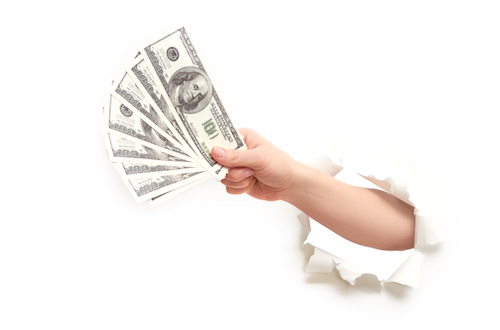By Benjamin Pimentel
Attention, women business owners: The government wants to give you money. In fact, its funding for female entrepreneurs made big gains this year. U.S. Small Business Administration loans for women were up 18 percent in fiscal 2015 over the previous year, according to the federal agency. The SBA itself posted a record year with a whopping $23.6 billion in loans, 23 percent higher than 2014.
SBA loans for women made up only about a third of the agency's total annual funding over the past few years. But the SBA expects its lending to women business owners to rise, says Mark Quinn, the SBA district director for Northern California.
"The kinds of businesses we see more women involved in now need less in terms of capital investment," he tells NerdWallet, citing women-owned businesses offering professional or consulting services. But going forward, he says, the SBA expects the range of small businesses women take on and their overall need for small-business loans to grow.
Women have a variety of choices for small-business financing, but SBA loans are among the least expensive options. If you're a woman looking for an SBA loan, here are three things you should know.
What are SBA loans and why are they a big deal for women entrepreneurs?
To repeat, SBA loans are the best financing option for any small-business owner, mainly because they're typically the least expensive.
This is particularly true for women small-business owners, who play an increasingly important role in the U.S. economy. There are more than 9 million women-owned businesses in the U.S., employing nearly 8 million workers, according to a 2015 American Express report.
Under the agency's most popular program, the 7(a), the SBA guarantees up to 85 percent of loans of $150,000 or less, and 75 percent of loans of more than $150,000. These loans usually have low APR, currently at 5.5 percent to 6 percent.
The SBA also offers real estate and equipment loans and microloans, offered through nonprofit community-based organizations, of up to $50,000 with a maximum term of six years.
Furthermore, for women small-business owners, the SBA isn't just about funding.
The federal agency also serves the nonfinancing needs of women entrepreneurs through its Office of Women's Business Ownership, which runs a nationwide network of education centers.
What do I need to do to get an SBA loan?
Here's the downside to SBA loans: They're tough to get.
The SBA has a long list of application requirements, most of them focused on your credit history and the financial health of your small business. This can be challenging for those with bad credit. According to a recent Experian study, women business owners had an average consumer credit score of 689, slightly lower than male entrepreneurs, at 699.
That's why cleaning up your credit and financial record is a smart move if you're looking for small-business financing, especially from the U.S. Small Business Administration.
"Be smart about any debt you have," Deborah Sweeney, CEO of MyCorporation, tells NerdWallet. MyCorporation helps its clients through the process of setting up a small business. "Work to pay that debt off as quickly as possible."
What if my SBA loan application is rejected?
Again, you need to keep in mind that SBA loans are a tough get.
But here's good news if you're a woman small-business owner: You have plenty of options.
Akalp of CorpNet says she tells clients -- especially women -- to apply for SBA loans. "Go after it, apply and see what happens," she says. But she also tells women small-business owners to "have some alternative plans in place just in case the SBA loan doesn't happen."
These alternatives include online lenders -- although the APR on the financing offered by these lenders is typically higher than the SBA's rate, these are viable options for women entrepreneurs looking to build stronger small businesses.
Benjamin Pimentel is a staff writer at NerdWallet, a personal finance website. Email: bpimentel@nerdwallet.com. Twitter: @benpimentel
To get more information about funding options and compare them for your small business, visit NerdWallet's small-business loans page. For free, personalized answers to questions about financing your business, visit the Small Business section of NerdWallet's Ask an Advisor page.

